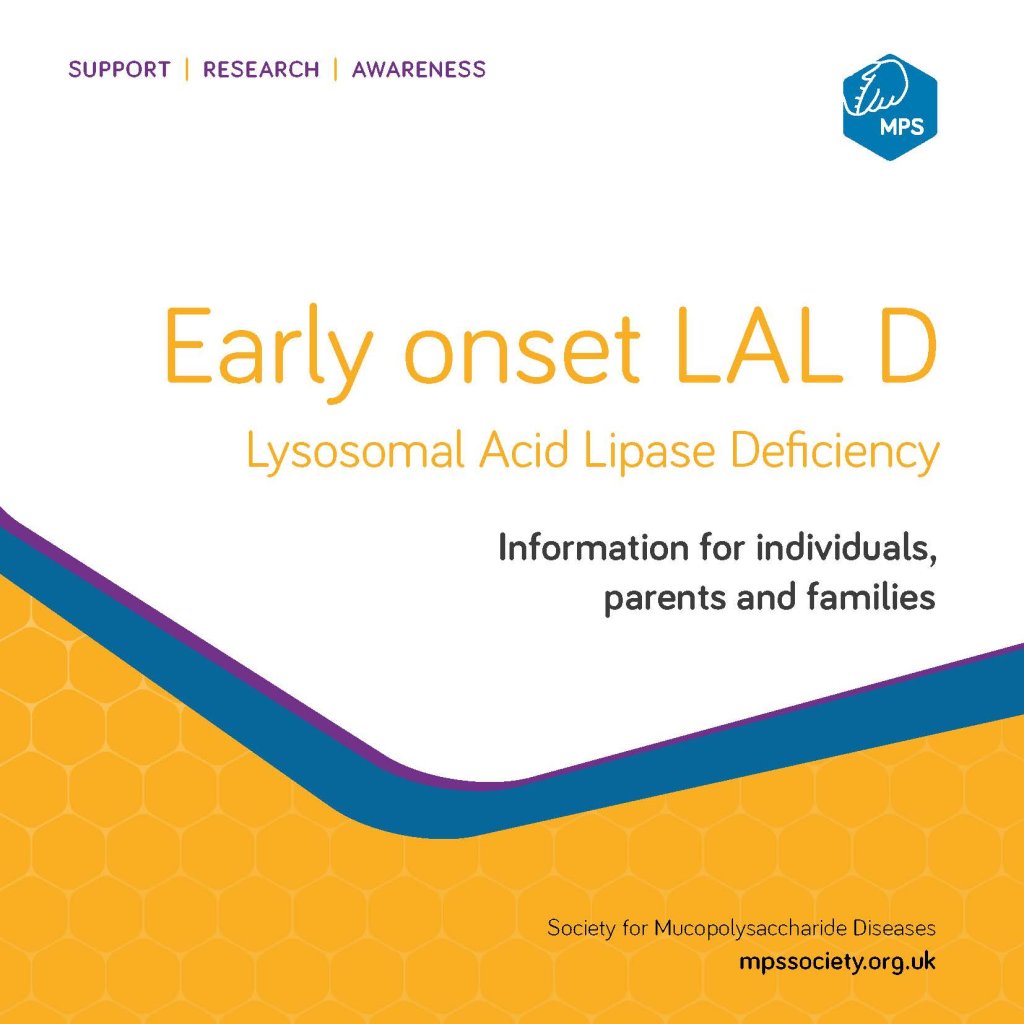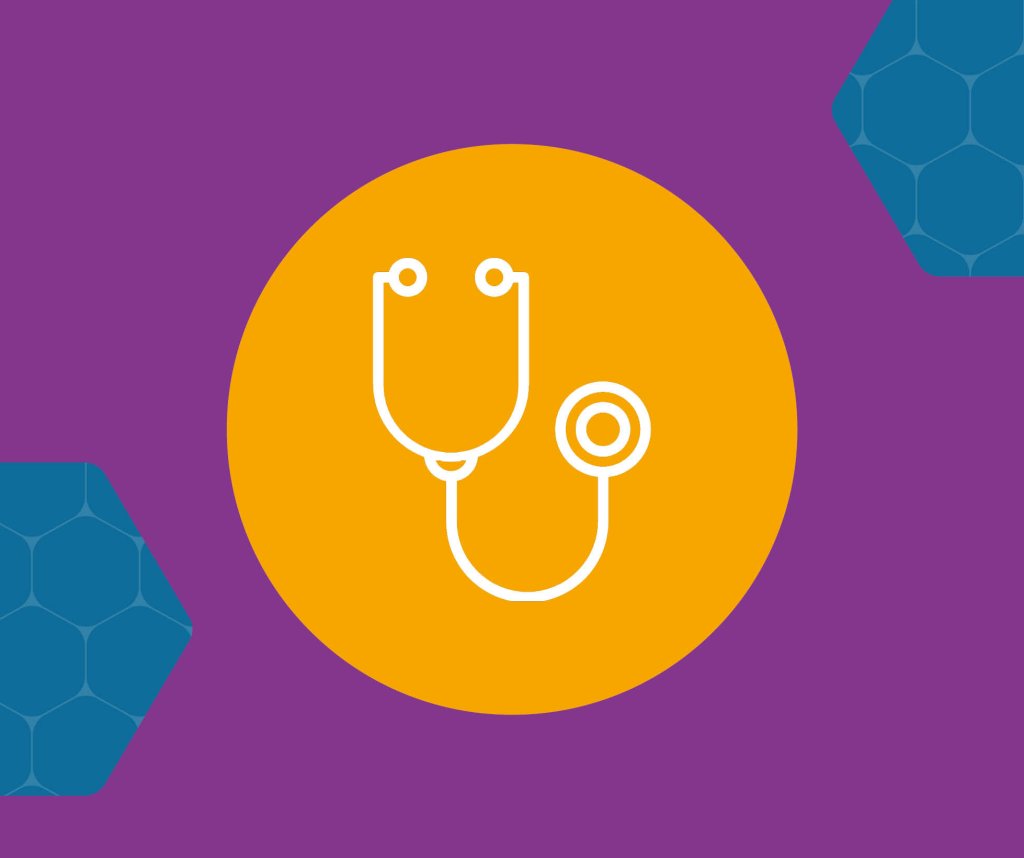In the course of normal life, the LIPA gene provides instructions for producing an enzyme called lysosomal acid lipase, enzymes which are special biochemical tools. Lysosomal acid lipase is found in the tissues of the body and it breaks down fats (lipids). The lipids produced are used by the body or transported to the liver for removal. People with LAL D cannot make enough of the enzyme lysosomal acid lipase, without sufficient levels of lysosomal acid lipase the normal break down of fats cannot take place and the fat cells accumulate in the tissues in the body, which typically causes liver disease.
Lysosomal acid lipase deficiency (LAL D) is a rare genetic disease that is characterised by problems in the breakdown and use of fats and cholesterol in the body.
Read on for information about the condition or see the latest updates and resources.
Frequently asked questions
LAL D is an autosomal recessive disease this means that both parents must carry the same affected gene and each pass this same affected gene to their child.
People probably carry from 5 to 10 genes with mutations in each of their cells. Problems happen when the particular gene is dominant or when a mutation is present in both copies of a recessive gene pair. Genes are the unique set of instructions inside our bodies that make each of us an individual. They are the blueprint for our growth and development, as well as controlling how our bodies function.
Genes are carried on structures called chromosomes and it is usual to have 23 pairs. A child will inherit half of the chromosomes from the mother and the other half from the father resulting in 23 pairs. 22 of these pairs look the same in both males and females. Pair 23 are the sex chromosomes, and this is the pair that differ between females and males. The X chromosome is inherited from the mother and the Y chromosome is inherited from the father. More information about inheritance is available in our publication.
For each pregnancy the chances of a baby inheriting LAL D are completely independent of whether a previous child was affected with LAL D. With each pregnancy there is a 1 in 4 chance that the baby will be affected by LAL D.
All parents of children with LAL D can benefit from genetic counselling, the counsellor can provide advice on the risk to close relatives and to suggest whether the wider family should be informed. To find out, during a pregnancy, if the baby is affected by LAL D screening tests can be arranged early on during a pregnancy for those families who already have a child with LAL D.
Where only one parent is a carrier, they can opt for carrier screening but it is not 100% reliable or accurate and is not possible in all cases. Amniocentesis and chorionic villus sampling are both available during the pregnancy to find out if the baby is affected by LAL D.
It is estimated that nearly 6% of the UK population (around 3.5million people) will be affected by a rare disease at some point in their lives. A single rare disease may affect up to about 30,000 people however the vast majority of rare diseases affect far fewer than this.
LAL D is estimated to occur in 1 in 40,000 to 300,000 people, varying by population.
People with LAL D commonly show various liver dysfunctions and an abnormal amount of lipids in bloods. Some people may also have gastrointestinal symptoms and cardiovascular problems, such as coronary artery disease.
Infants will show symptoms of the disease within the first few days to the first month of life, the first of these symptoms typically including vomiting and diarrhoea and growth failure. LAL D can be diagnosed with a simple blood test.
At present there is treatment for symptoms as they arise, but no cure for the underlying disease. More information on supportive care treatments for people with MPS and related diseases can be found in the treatments section.
For an up-to-date list of current UK based trials taking place visit Be Part of Research (resource provided by the National Institute for Health Research). For an international search visit Clinical Trials (resource provided by the U.S. National Library of Medicine).
This resource provides information on trial status including recruiting, completed or withdrawn and worldwide trial locations. To find out more about past or current trials speak to your doctor and learn about the risks and potential benefits.
The MPS Society is the only UK charity at the forefront of supporting people and families affected by MPS and related diseases. Our extensive support services offer you a wide range of support and resources.
The team can advise and sign post you to adequate needs-led support and services in your local area as well as social care, home adaptions, education and much more.
The support team can visit you in your home and provide you with vital support.
Get involved and support us in the community, volunteer or support fundraising; we are a small charity but with your support we can continue to offer a highly valued and essential service.
Latest updates
The importance of clinical guidelines
Regardless of location and specialist teams, clinical guidelines exist to ensure the same high standard of care. Learn more about our involvement in their development and see which conditions have so far been published.
Update for patients with late onset LAL D (Lysosomal acid lipase deficiency)
Despite best efforts, NICE was unable to make a recommendation for the use of sebelipase alfa in LAL-D patients with non-Wolman disease.
NICE approves life-saving treatment for children with infantile lysosomal acid lipase deficiency
The MPS Society is delighted to announce that sebelipase alfa (Kanuma®) has been recommended by NICE as an option for long-term enzyme replacement therapy for people with infantile lysosomal acid lipase deficiency.
Need someone to talk to?
Our support includes an active listening service and telephone helpline.



